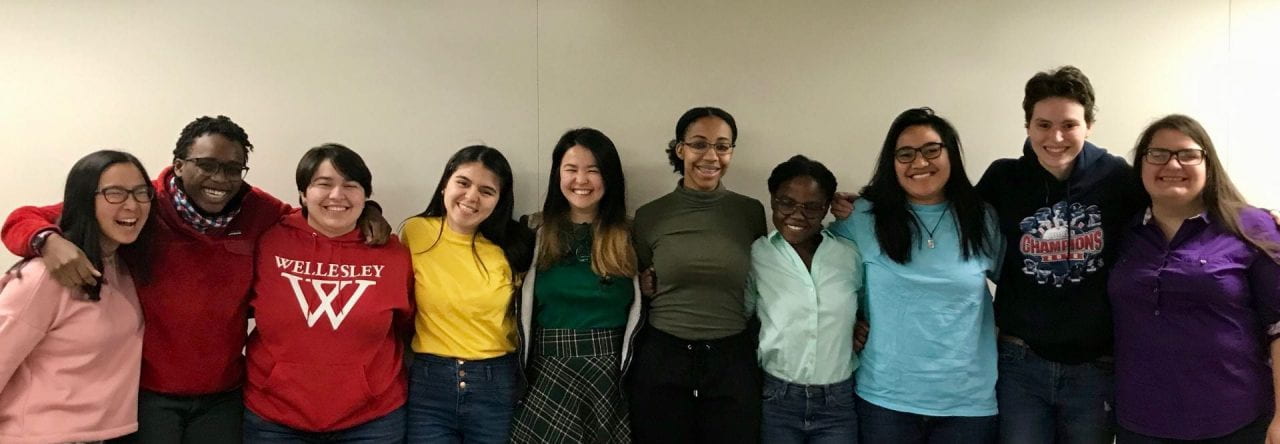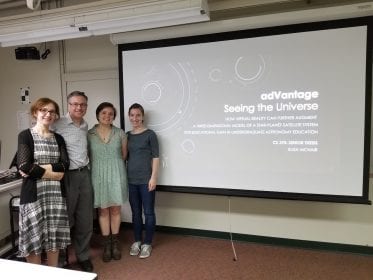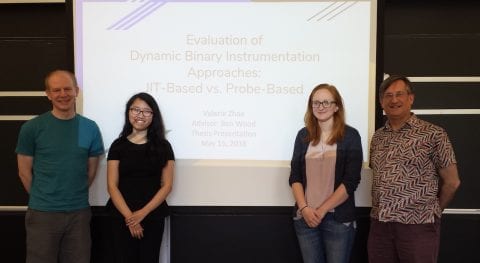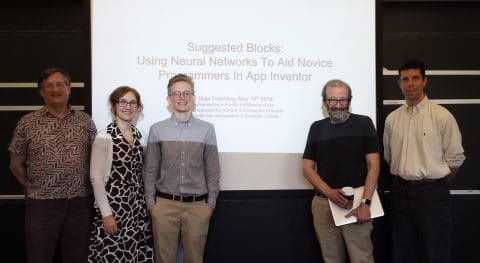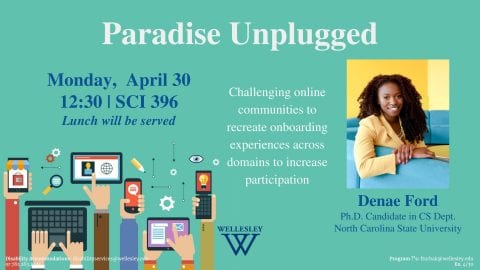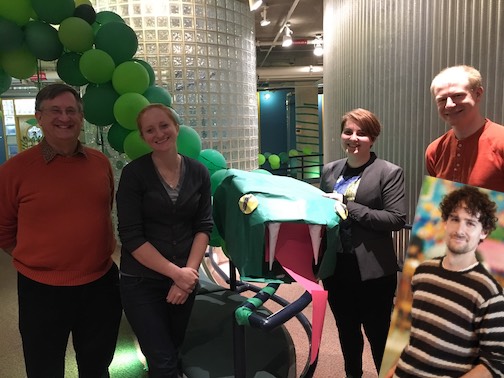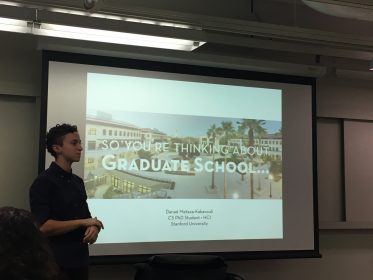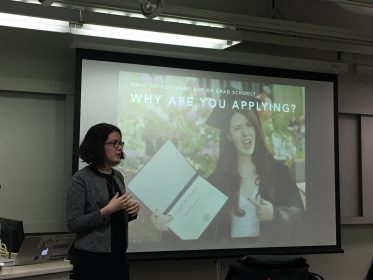Distinguished alum and computing pioneer Mary Allen Wilkes ’59 (also recently featured in NYT Magazine) gave a CS colloquium talk to a standing-room-only crowd on Tuesday, 9 April 2019. She spoke about her work developing the operating system and programming environment of the LINC, an early personal computing system that revolutionized biomedical research, as well as the history of women in computing.
The talk was recorded (available here, talk starts at 2:40) and Mary Allen prepared a handout with recommended reading for the audience.
Abstract
The Laboratory Instrument Computer (LINC), created in the early 1960s at MIT, constituted a sea change from computing using large, off-line, remote, centrally-controlled computers to computers that were small, interactive and operated under the direct control of their individual users. The LINC revolutionized biomedical research, and was the gateway to personal computing. Mary Allen Wilkes was a member of the LINC development team. She will describe the dramatic transformation in biomedical research caused by the LINC, and its foreshadowing of the personal computers of today. She will also give a brief summary of the history of women in the computer field, and her experience in it in the 1960s. Ironically, the field may have been more open to women then than it is today.
Bio
Mary Allen Wilkes worked in the computer field for 11 years before turning to a career as a lawyer. As a computer programmer in the 1960s at MIT, she participated in the development of the LINC computer and wrote its system software, including its interactive operating system LAP6, one of the earliest such systems for a personal computer. Her work was recognized in Great Britain’s National Museum of Computing‘s 2013 exhibition “Heroines of Computing” at Bletchley Park, and by the Heinz Nixdorf MuseumsForum in Paderborn, Germany, in its 2015-16 exhibition, Am Anfang war Ada: Frauen in der Computergeschichte (In the beginning was Ada: Women in Computer History).
Wilkes is a graduate of Wellesley College and the Harvard Law School. She practiced law in the Boston area for over 35 years, including practice as a trial lawyer, an Assistant District Attorney for Middlesex County, an arbitrator for the American Arbitration Association, and an instructor in the Trial Advocacy Workshop at the Harvard Law School. She also served for eight years as a judge of the Annual Willem C. VIS International Commercial Arbitration Moot competition in Vienna, Austria, organized by Pace University Law School.
Wilkes is the author of “Conversational Access to a 2048-Word Machine” about the LINC operating system (Comm. of the Association for Computing Machinery 13, 7, pp. 407–14, July 1970) and “Scroll Editing: an On-line Algorithm for Manipulating Long Character Strings,” which describes the LAP6 document editing function (IEEE Trans. on Computers 19, 11, pp. 1009–15, November 1970).
